Donald Trump, the Emperor of Social Media
As FDR mastered radio and JFK conquered TV, Donald Trump rules the Internet like no other candidate.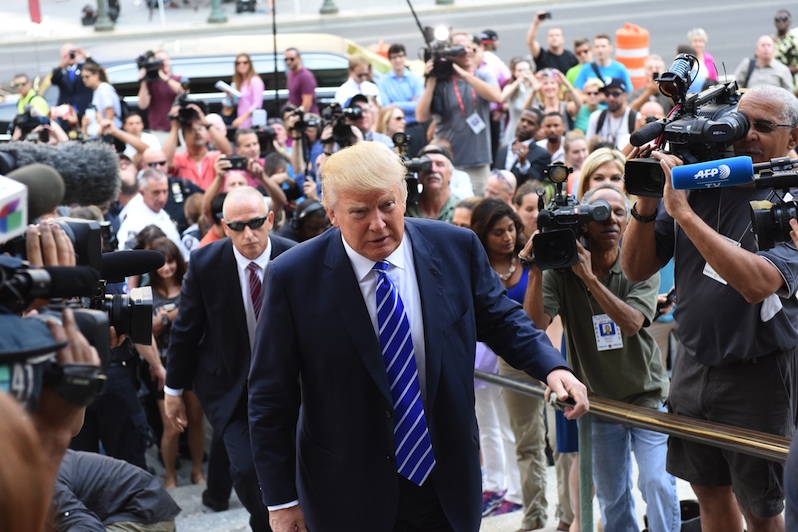 Donald Trump. (a katz / Shutterstock)
Donald Trump. (a katz / Shutterstock)
By Neal Gabler / Moyers & Company
Donald Trump. (a katz / Shutterstock)
By now I must be at least the millionth commentator to observe that Donald Trump is the candidate for whom social media have longed. What FDR was to radio and JFK to television, Trump is to Twitter, Instagram, Facebook, Snapchat, et al.
This is usually taken to mean that Trump, like some political McLuhan, is a mastermind who understands social media the way his forebears understood their media. But I suspect that with him, it may be less a matter of his brilliance or even his intuition than of the accidental match of personality with medium. He is a man of his technological moment.
The standard take on that mutuality is that social media prioritize constant churn, and Trump is a non-stop, one-man political tornado, roaring through this campaign and sucking up every news cycle in his vortex. That certainly describes what Trump has done, but it isn’t exclusive to social media. In fact, he seems to have grabbed more attention on traditional news sites, especially cable TV, than on social media.
Where Trump and social media do conjoin, promoting his candidacy and changing our whole political environment, isn’t in the generation of noise. It is in something even more fundamental to each: Trump is the “decontexualizer-in-chief” operating in a medium that likewise is about cutting the world into bits that don’t necessarily accrete into anything sensical.
Books have been written about the impact of social media on our electoral process, and decontextualization usually isn’t high on the list of transformations, in part because fragmentation isn’t usually high on the list of properties that inhere to social media. Those properties, as I see them, are instantaneity, anonymity, democratization, authenticity and yes, fragmentation, and they lead, in their various ways, to a variety of consequences.
Studies have shown, not surprisingly, that social media contribute to increased polarization of our politics, since social media allow like-minded people to find one another who might otherwise be atomized – sometimes to public advantage, and sometimes not.
You might think of social media as a mechanism of social aggregation that can lead to positive social activism. Then again you might think of it as a virtual Munich beer hall. In any case, I don’t think there is any doubt that social media have begun to edge out more traditional forms of collective action – for example, party apparatuses. And I also don’t think there is any doubt that Trump benefited from this erosion, the darling of social media vanquishing Jeb Bush, the darling of the GOP establishment, or Marco Rubio, the darling of the MSM.
Thanks in part to the anonymity in which folks can use social media, those media have also been accused of coarsening our politics, evicting the politesse, and Trump has clearly benefited from that, too. It is much easier to bloviate, as Trump’s supporters do, in the blogosphere where you can’t be found than on the page or the TV screen where you can. There are no trolls in the MSM because there are no bridges for them to hide under. (OK, I take that back. There is Fox News.) We all know that social media can facilitate bullies and fortify the weak and cowardly, which can be mistaken for the authenticity of speaking your mind. Again, enter Donald Trump.
When you think of democratization on social media, you think of that collective action I referenced above. But social media – in fact, the Internet generally – have also recalibrated our focus by democratizing information; not the access to it, but the lack of discrimination among bits of information. The Internet is a great disinformation machine where anyone can say anything. It is also a kind of magnifying glass enlarging the most minute and trivial things – things, frankly, that very few people seemed to care about before the advent of the Internet. I don’t recall us ever having recaps of every episode of every television program, complete with critical annotation. Well, now we do.
Similarly, though live tweeting might be perceived as a form of increased immediacy, it might also be perceived as a form of disproportion. By magnifying the small and putting everything on the same valence, the trivial and the significant together, it fogs our ability to discern the big from the small. And, God knows, this has helped Trump, too. If he is the most bullying of candidates, he is also the most trivializing. His idea of a policy pronouncement is “build a wall.”
When it comes to democratization, though, perhaps more important as a practical matter is how social media can allow a candidate to circumvent the MSM and seize the narrative: the democracy of challenging the gatekeepers. This has certainly been one of Trump’s achievements as well. Every time the MSM begin one of their Trump rants – the sort of rants that in the past have forged iron narratives candidates cannot break – Trump rants right back over Twitter, leaving the MSM no choice but to cover the rant and, in the process, subvert themselves.
I said in an earlier column that in Iowa, Trump stole the narrative away from the MSM. He has been running with it ever since, and it has been this collaboration between Trump and social media that, I think, may be the second most important way he and they have transformed our political process. By the lights of the MSM, Trump should have been buried long ago under the weight of his effrontery. With the help of social media, he hasn’t been.
I say “second most” because the most important, I believe, is the way Trump, with the accommodation of social media, has used its affinity for decontextualization to decontextualize our politics. Social media are the champions of the nugget – the minute-or-less Instagram film, the 140-character tweet, the instantaneous Snapchat, the six-second (yes, six seconds!) Vine. Because nothing in social media is sustained, people may connect, but ideas rarely do. By the time you have finished slicing and dicing everything into those nuggets, you have pried them out of any larger context, any skein of meaning, any argument, any vision. In a way, social media take the “Memento” approach to life and apply it to everything.
Politically, this fragmentation has major ramifications. Context is reason. Context is what enables us to weigh and judge. Context removes impulse. And this is really why you cannot conduct a serious campaign on social media. Context disappears. Of course, radio lends itself to emotion and unreason and even soundbites. So obviously does television. Both can substitute the momentary for the considered.
This is one of the things the great media analyst Neil Postman decried in his book “Amusing Ourselves to Death.” He fretted over the way an increasingly visceral culture had given rise to an increasingly unserious culture, with the obvious political implications. Above all else, Donald Trump is the candidate of impulse running against candidates of calculation. He is the king of the one-liner, the insult, the proudly politically incorrect slur. And that is a central reason why disaffected Republicans have rallied to him. He is nothing but bites.
All of which makes Trump not just a more outrageous and blustering candidate than the ones to whom we are accustomed. It makes him an epistemologically different kind of candidate – one who challenges the very basis of our politics. He doesn’t have to make sense. He doesn’t have to provide a program or a vision. All he needs are his zingers, so long as they are no more than 140-characters. Twitter can do that to you. And now we are getting a taste of what it can do to our political discourse.
Your support is crucial…With an uncertain future and a new administration casting doubt on press freedoms, the danger is clear: The truth is at risk.
Now is the time to give. Your tax-deductible support allows us to dig deeper, delivering fearless investigative reporting and analysis that exposes what’s really happening — without compromise.
Stand with our courageous journalists. Donate today to protect a free press, uphold democracy and unearth untold stories.

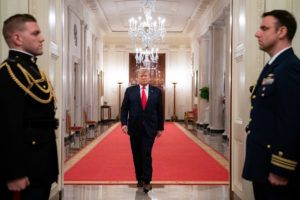
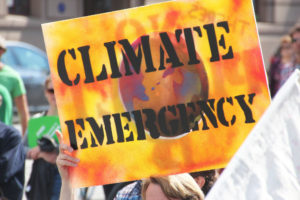

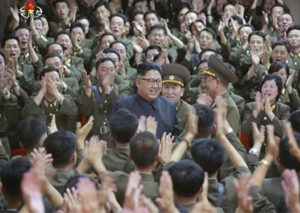
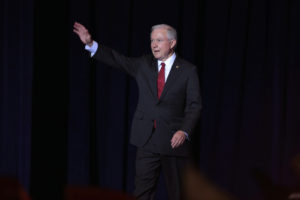
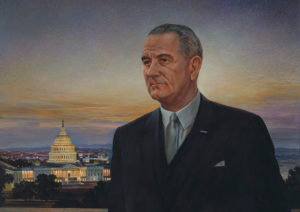


You need to be a supporter to comment.
There are currently no responses to this article.
Be the first to respond.